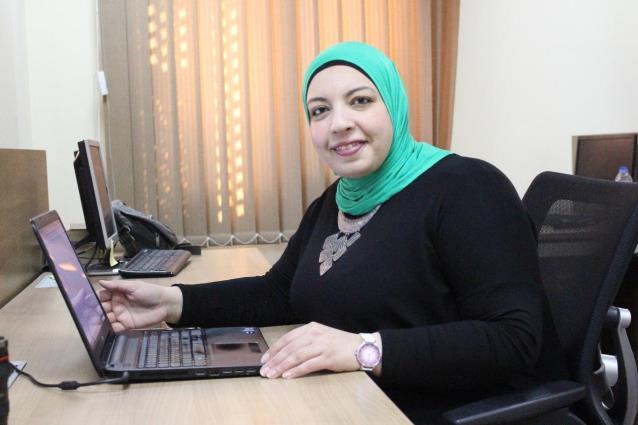Dar El-Ifta works to end harmful practices against women
Date:

In addition to its policy work with governments, UN Women supports civil society efforts to develop and implement awareness-raising campaigns on a full range of issues related to gender equality and the empowerment of women, including child marriage, female genital mutilation and cutting (FGM/C). These activities also aim to promote the positive engagement of men and boys as advocates for gender equality. As part of this comprehensive approach, on 12 and 13 November the UN Women Regional Office for the Arab States convened a consultation meeting on child marriage and FGM/C with religious institutions, including Dar El-Ifta of Egypt, civil society, academia, youth representatives and UN agencies from Egypt, Libya, Morocco and Tunisia.
During this consultation, participants shared good practices and lessons learned on the most effective ways to address these harmful practices and prepared a list of recommendations that were subsequently submitted to the African Union High-Level Dialogue with Traditional Leaders and Cultural Institutions on the Elimination of Child Marriage, FGM/C and Other Harmful Practices in Africa that took place in February 2019.
The recommendations submitted by stakeholders in the Arab States region included that responsible authorities should review, amend where necessary and enforce laws and regulations concerning child marriage and FGM/C in order to ensure the effective protection of women and children. The recommendations also insisted on the need to establish extensive dialogues and consultations with traditional, cultural and religious leaders, as well as religious institutions and ministerial committees at both official and community levels to reach common ground on the approaches for the elimination of these practices and to collaborate with faith-based leaders and encourage them to speak out against child marriage and FGM/C by explicitly stating that these practices have no religious basis.
“We look at governments to implement these recommendations in collaboration with religious institutions, civil society, academia, youth and UN Agencies, within the context of the 2030 Agenda and through a human rights-based approach”, said Rasha Abouelazm, Programme Manager of UN Women’s Engaging Men and Women for Gender Equality regional programme. “Dar El-Ifta, she added, is a religious institution whose role is absolutely central to this effort in the region and beyond”.
Speaking to the microphone of Ahmed Ezzat, one of the spokespersons of Dar El Ifta in Egypt and a participant to the November consultation, Heba Salah reiterated Dar El-Ifta’s position regarding child marriage and female genital mutilation. She said that both practices, though widely spread in the region, have no foundation in Islam. “Female Genital Mutilation is prohibited (haram), regardless of whether it is performed in a hospital or a public or private health clinic and this is the official opinion that Egypt’s Dar El-Ifta maintains with no exception,” she said. Concerning child marriage, she cited Dr. Shawki Allam, Grand Mufti of Egypt who said in his TV show “With the Mufti” aired on Al-Nas Religious Satellite channel in March 2018 that child marriage contradicts the rulings of Shari’ah and leads to social disaster. “Child marriage, she said, is the root for many social diseases and must be ended and criminalized.”
“Child marriage and female genital mutilation are social and cultural traditions without any justification in Islam,” she noted. “Dar El-Ifta has issued a number of official and non official statements in this regard and most recently, we have produced animated videos to explain how far these practices are from Islam.”
Dar El-Ifta is an Egyptian educational institution that has served as a center for Islamic legal research since its establishment in 1895. It keeps contemporary Muslims in touch with religious principles, addresses doubts concerning religious and worldly life, and reveals religious law for the new issues of contemporary life. Extending beyond Egypt, Dar El-Ifta receives inquiries from across the Islamic world, as well as foreign students who want to receive trainings on Islamic law. In keeping pace with contemporary society, Dar al-Ifta has invested in the new means of communications, including the creation of a hotline accessible every day to all people around the world, a YouTube channel and Facebook pages (in Arabic and English) featuring short videos on a wide range of issues including women’s and gender issues. In addition to being particularly active on all media including the social media, Dar El-Ifta has also dedicated an important part of its most recent International Conference that took place in Cairo in October 2018 with the participation of 73 delegates from different countries to address many issues relevant to women’s status and gender equality such as human rights issues, family issues including single mothers, foster families, lineage and adoption, unregistered marriage, e-marriage and divorce contracts and women’s right to education, travel, official positions and others.
Heba Salah concluded by saying “Islam categorically rejects child marriage and FGM. We need to instill values that respect human dignity and this is the path that Dar El-Ifta follows.”
To learn more about this topic, click here to listen to the Hidden Women podcast supported by UN Women Regional Office for the Arab States.